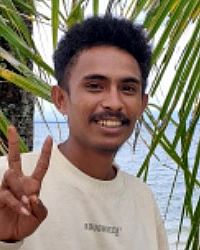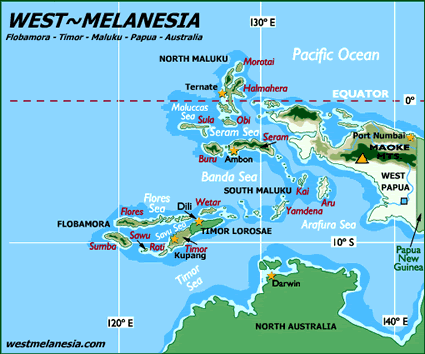The Mairiri people, located in Indonesia, are an ethnic group whose history is shaped by their interactions with neighboring communities and the natural environment. Their origins are linked to the indigenous populations of the region, and they have traditionally lived in areas characterized by dense forests and mountainous terrain. Over time, the Mairiri have adapted to changes brought about by external influences, including trade and colonization, while maintaining their distinct identity.
The Mairiri people primarily sustain themselves through agriculture, with rice and cassava being the main crops. Those who live near rivers and forests fish and hunt to supplement their diet.
Villages are typically composed of small, closely-knit communities, with houses constructed from locally sourced materials such as wood and bamboo. Social life revolves around family and communal activities, with elders playing a central role in guiding the community. Traditional crafts, such as weaving and carving contribute to the local economy.
The Mairiri people practice a blend of traditional animist beliefs and Islam. The belief in spirits associated with nature, such as those inhabiting forests and rivers, remains significant. Rituals and ceremonies are conducted to honor these spirits, particularly during planting and harvest seasons. They blend this with Islamic practices.
Christianity, introduced through missionary activity, has also become an aspect of spiritual life, with many Mairiri attending church services regularly. The coexistence of these belief systems reflects the community's adaptation to external influences while preserving elements of their traditional spirituality.
The Mairiri people face several challenges related to access to basic services and infrastructure. Healthcare facilities and educational opportunities are limited, particularly in remote areas. Economic opportunities beyond subsistence agriculture are needed to improve living standards and provide sustainable livelihoods. Infrastructure development, including improved roads and communication networks, is necessary to enhance connectivity and access to resources. Additionally, initiatives that address environmental conservation and the sustainable management of natural resources are important for the long-term well-being of the Mairiri people.
Pray for the Mairiri culture to be renewed and enhanced by a work of the Holy Spirit and shaped into a God-centered and God-honoring mold.
Pray for the Holy Spirit to move among Mairiri family and community leaders to seek his face and enjoy his blessings.
Pray for the Lord to thrust out workers who will be compelled to nurture a movement to Christ among the Mairiri people.
Pray that soon the Mairiri people will have faith that will lead them to live honorable lives that will draw others to the savior.
Scripture Prayers for the Mairiri in Indonesia.
Indonesia Heritage Foundation. (2023). Ethnographic Overview of the Mairiri People. Retrieved from indonesiaheritage.org
UNDP Indonesia. (2023). Development Challenges in Rural Indonesia. Retrieved from in.undp.org
| Profile Source: Joshua Project |











